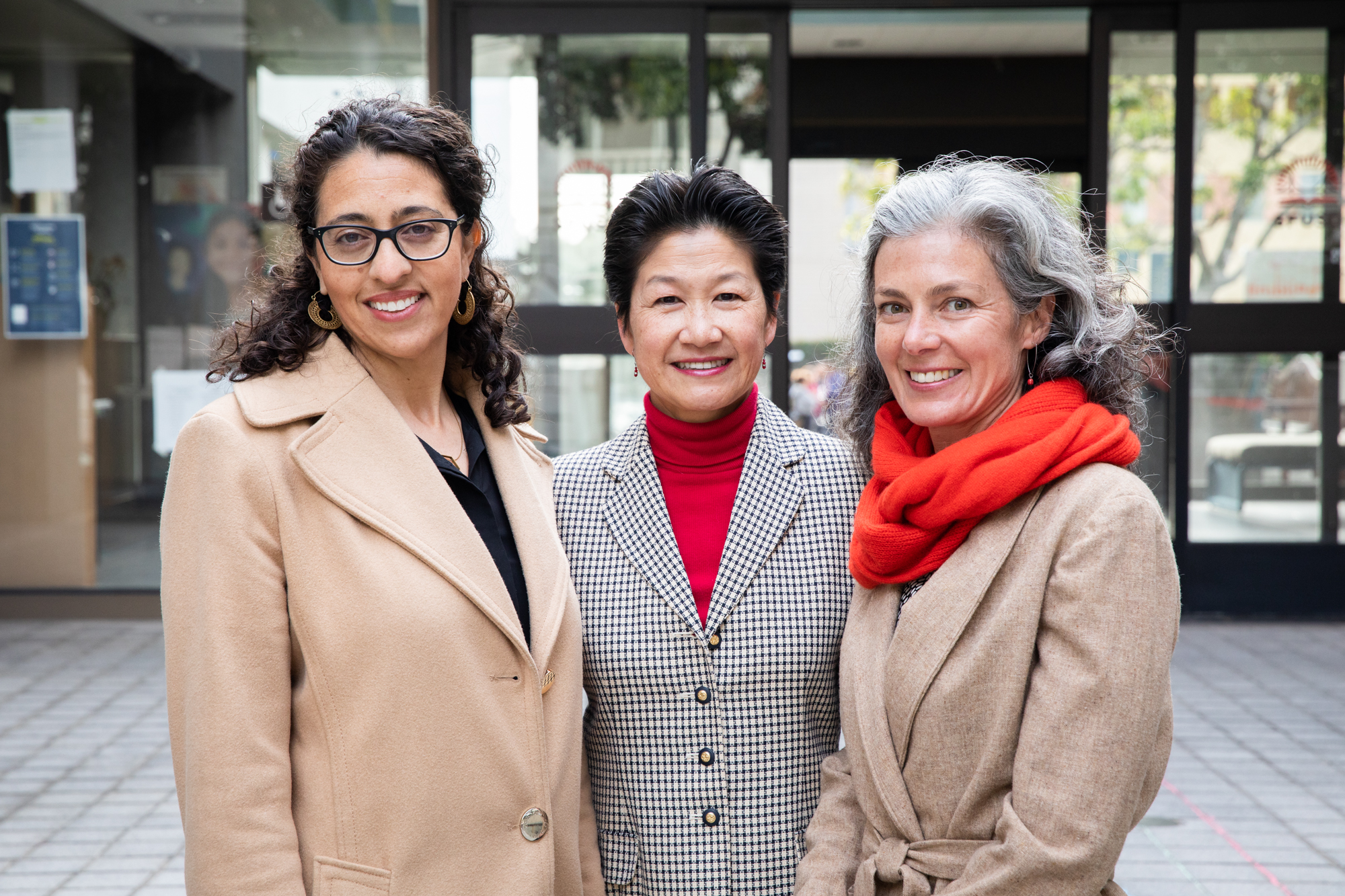In the 2018 election, there were 19 candidates on the ballot for San Francisco Board of Education. In 2020, as coronavirus and stay-at-home orders raged on, 10 people threw their hats into the ring.
In 2022? Two people have filed papers so far.
Cassondra Curiel, United Educators of San Francisco president, doesn’t anticipate more candidates. Tensions ran high during the pandemic and national coverage swarmed the San Francisco Unified School District and board. Before the historic recall, former Commissioners Gabriela López, Alison Collins, and even student delegates were the target of threatening messages.
“It really is the political climate,” Curiel said. “When Tucker Carlson is running [San Francisco school board coverage] on his show, you know it’s bad.”
The two who have filed for San Francisco school board are special education advocate Alida Fisher and Deldep Medina, who did not respond to request for comment. Former SFUSD principal Jessica Huang briefly filed to run but decided against it as she is moving back from some time abroad.
The three commissioners appointed by Mayor London Breed—Lainie Motamedi, Lisa Weissman-Ward and Ann Hsu—in the aftermath of the February recall will run to retain their seats in November. All three stated their intentions to run but have not yet filed papers.
UESF members endorsed Commissioner Lisa Weissman-Ward and Fisher, who has filed papers, in May. Commissioners Ann Hsu and Lainie Motamedi did not reach the threshold needed and are not endorsed by the union. That leaves one endorsement slot open for the three seats up for election in November that will be revisited later.
“It’s an honor to get an endorsement from the teachers’ union,” Weissman-Ward said last month. “When the mayor appointed me, she knew I was going to put students front and center and by putting students front and center, I was going to be thinking about the immigrant community [and marginalized students].”
When asked why they thought there were split endorsements of current commissioners, Weissman-Ward and Motamedi said they didn’t know the union’s reason. Hsu did not respond to a request for comment about the endorsement.
Curiel said Weissman-Ward provided strong and outright answers to member questions that built trust on top of her background as an associate director of the Immigrant Rights Clinic at Stanford Law School. Motamedi’s answers on whether she supported school closures were a little vague while Hsu has supported the idea, she added. Both previously told The Standard that it needed to be considered as an option.
“That immediately put people on edge,” Curiel said of school closures. “While I respect that for being forthright, Ann is not quiet about not knowing things. Alida is well known through SFUSD by many educators. When she gets up to talk about these things, not only are her answers trusted but they’re answers that mirror those at the school sites.”
UESF endorsements have historically carried significant weight and generally predicted the winners. But not always—in the 2018 election, Gabriela López ran without the union endorsement and won.
At this time leading up to the 2018 election, Fisher recalls there being over 25 candidates who filed to run that whittled down to 18. She also ran in 2020 and is motivated to run again to bring deep, institutional knowledge to the board beyond her frequent public comment appearances.
“It’s very, very low,” said Fisher, SFUSD parent of five who sits on the Community Advisory Committee for Special Education. “The pandemic did no favors to our public education system—it’s pretty much stressed to its limit. A lot of folks are scared off by the recall. Good, civic-minded folks who might have [run], now people are looking and saying, ‘Hmm, maybe not.’”
While the number of candidates is low, it also means less noise and effort to whittle down the candidates.
“To some degree, it’s a little bit of an opportunity as well,” Curiel said. “It’s been years that we have heard criticism about it being a stepping stone.”
